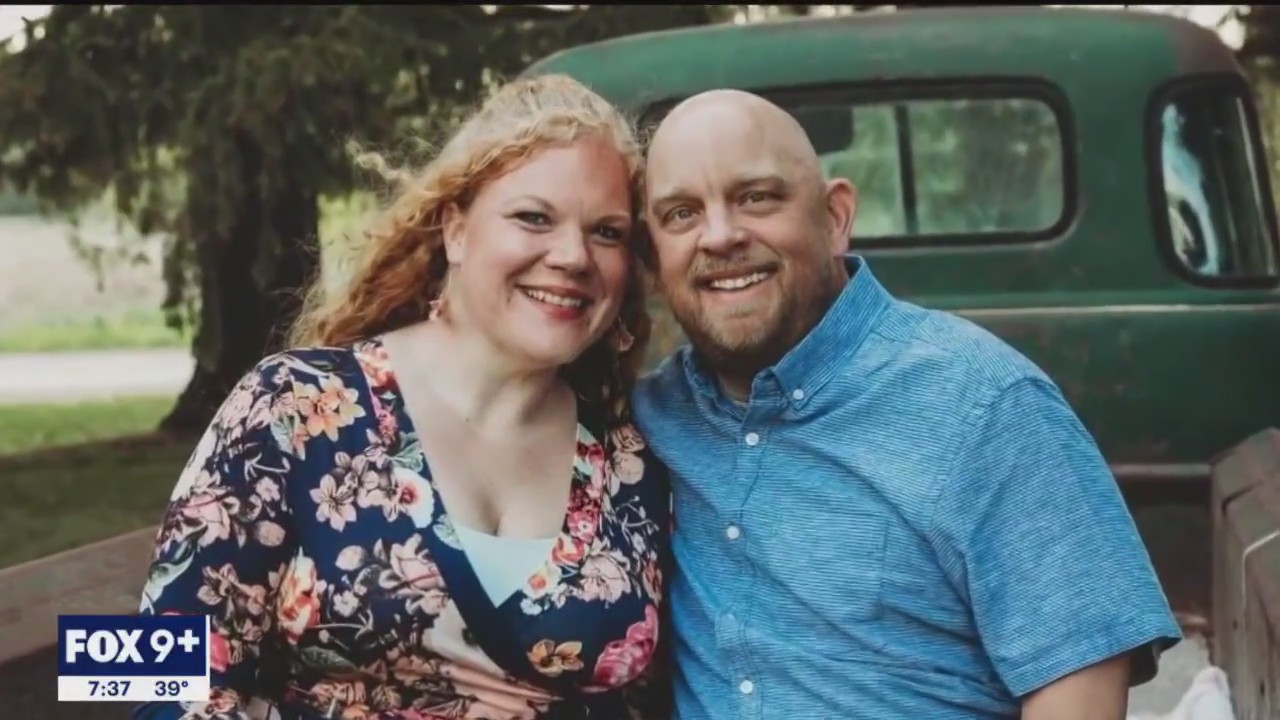Mayo Clinic offers new weight loss program to expand organ donor pool

Weight loss program to expand organ donor pool
When Stacy Loneman met John Reiser on an online dating site, the match could very well have ended before it got a chance to start. "I asked you to come out for a drink, and you’re like, I don’t drink," said Stacy to John as they recalled how they both met. It turns out John had something serious to reveal. "And he says, I have end-stage kidney disease and I’m on dialysis."
ROCHESTER, Minn. (FOX 9) - When Stacy Loneman met John Reiser on an online dating site, the match could very well have ended before it got a chance to start.
"I asked you to come out for a drink, and you’re like, I don’t drink," said Stacy to John as they recalled how they both met. It turns out John had something serious to reveal. "And he says, I have end-stage kidney disease, and I’m on dialysis."
Stacy, a nurse and diabetes educator at Mayo Clinic, knew this was serious. "And I said, oh man, you know this is heavy," she recalled. But a close friend who is also a nurse at Mayo encouraged her to stick with it.
"Don’t let that define the person," Stacy said of her friend’s advice. "You might like the person."
So, she and John got to know each other and their connection took off. But John, who was suffering from IgA nephropathy, was getting worse and spending three days a week on dialysis. His doctor told him his quality of life was about to deteriorate.
At about the same time as their relationship was developing, Stacy joined a weight loss trial at Mayo. The trial was an aggressive calorie-based study to match patients with a specific individual intervention to promote rapid, healthy weight loss. For Stacy, it worked, and while her weight was starting to drop, she looked into the possibility of donating a kidney to John.
"And finding out that weight was part of the process, you have to be under a certain BMI," explained Stacy of the body mass index requirements to become a living kidney donor. The Mayo Transplant Program typically requires donors to have a BMI of 35 or lower, so Stacy stuck with the program.
"I was fascinated by Stacy when I met her because she needed to lose weight to donate a kidney to someone else, to her boyfriend. That was so powerful," recalled Dr. Andres Acosta, a gastroenterologist and lead investigator in the weight loss trial. "We knew that by helping Stacy, we’re not only helping her own life, but she’s going to give life to someone else by donating a kidney."
Stacy lost 40 pounds in three months during Dr. Acosta’s trial and qualified to donate her kidney to John. During an operation at the Mayo Clinic Transplant Center on June 16 of 2021, doctors removed one of Stacy’s kidneys and transplanted it into John.
"As soon as they hooked up her kidney, I mean it started automatically working," said John.
The success of both the transplant surgery and Stacy’s weight loss was a light bulb moment for Dr. Acosta. As an obesity expert, he refers to data that shows 10% of people have severe body weight with a BMI of greater than 40. Another 20% have a BMI greater than 35. That automatically eliminates a substantial number of Americans from becoming living organ donors.
"It should not be acceptable that someone is rejected from being a donor because of their weight," said Acosta. So in conjunction with his colleagues in the Mayo living liver transplant program, they are now incorporating Acosta’s weight loss regimen as a means of possibly expanding the pool of living liver donors.
"Now we’re going to be proactive, and we’re going to be aggressive in helping them lose weight," said Acosta. "So their decision to save a life can be supported by us, by our own tools that we have been studying, and we’re actually going to bring them to the clinic."
For Stacey and John, their lives are not just connected by a kidney, but by a wedding ring. The Reisers married in September 2022. With Stacy’s two sons, they are now one happy family.
"It’s so much more joy to my life," said Stacy. "Not only because I have a husband that’s amazing, but because I just feel so much better."
To become an organ donor you can learn more at www.life-source.org. To learn more about the Mayo Clinic Living Transplant Program, click here.

